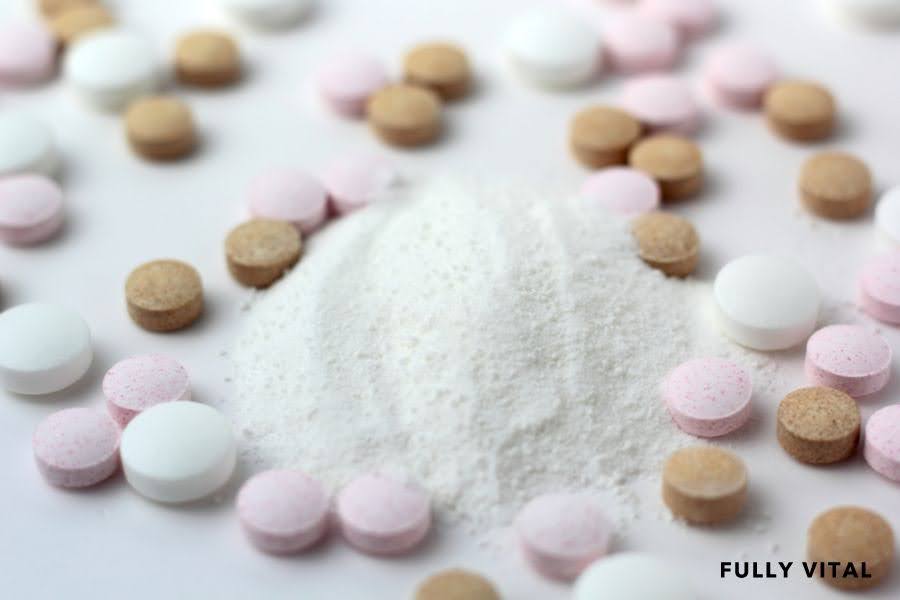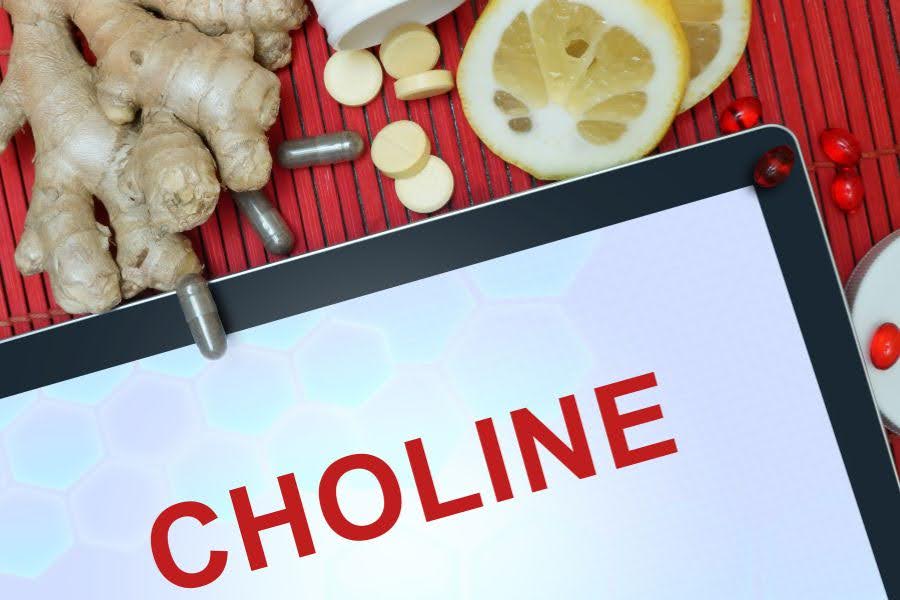
Inositol: Addressing Hair Loss With B-vitamins
Hair loss is an issue that affects millions worldwide, and it's more than just a cosmetic problem—it can deeply impact our confidence and self-image.
While there are numerous potential solutions touted for hair loss, one not so widely known is the role of certain B vitamins, particularly Inositol.
To harness the power of these essential nutrients in stimulating hair growth, consider our specially formulated Hair Growth Serum.
Enriched with hair-friendly vitamins, our serum is designed to nourish your scalp and promote healthier, fuller hair.
Experience the difference and boost your confidence by visiting Fully Vital for more information.

I LOVE MY HAIR NOW
FullyVital hair serum and hair vitamins made tremendous improvements in my hair. I truly love my hair now.
Shop Hair ProductsWhat Is Inositol?
Inositol is a carbohydrate compound that influences insulin and several hormones associated with mood and cognition.
Though often grouped with B vitamins due to their similar functions, it is not a true vitamin since the body can synthesize it.
Myo-inositol and D-chiro-inositol are two forms that play critical roles in cell signaling and are part of the makeup of cellular membranes.
Important for several biological processes, Inositol has gained interest for its potential benefits in managing conditions like PCOS, mental health, and, notably, hair health.
What Causes Hair Loss?
Genetic Influences On Hair Loss
Genetics plays a strong role in hair loss, with conditions such as androgenetic alopecia being hereditary.
This type of hair loss, known as male or female pattern baldness, is characterized by a predictable pattern and can begin as early as one's teenage years.
The sensitivity of hair follicles to hormonal changes, especially to dihydrotestosterone (DHT), causes them to shrink over time, leading to thinner hair and eventual hair loss.
Stress-Induced Hair Shedding
Stress, both physical and emotional, can trigger a temporary hair loss condition known as telogen effluvium.
When the body experiences a severe stressor, such as illness, surgery, or mental stress, hair follicles can prematurely enter the resting phase, leading to an increase in hair shedding several months later.
This type of hair loss is usually diffuse and non-scarring, often reversible once the stressor is removed.
Nutritional Deficiency And Hair Loss
Hair growth can be significantly impacted by nutritional deficiencies.
Lacking sufficient protein, iron, vitamins, and minerals in one's diet can interrupt the growth phase of hair cycles, leading to hair loss.
Inositol deficiency, though rare, may contribute to hair thinning, as it is an important component of cell membranes, including those of hair follicles.
How Can Inositol Benefit Your Hair Health?
Promoting Stronger Hair Growth
Inositol is thought to strengthen hair at a cellular level, largely due to its role in maintaining proper cell membrane integrity.
This strength is vital for the health of hair follicles, which, when supported, can produce stronger, healthier hair.
An optimal supply of Inositol may help enhance the hair's defense against damage and breakage.

Regulating Hormonal Balance
An imbalance in hormones like insulin can adversely affect hair growth and health.
Inositol, specifically its derivative D-chiro-inositol, is known to help improve insulin sensitivity.
This can ameliorate conditions like PCOS that often lead to hair thinning or loss as a symptom.
Reducing The Impact Of Stress
By participating in the synthesis of neurotransmitters, such as serotonin and dopamine, Inositol can play a part in reducing stress levels.
Lower stress can mitigate its impact on the hair cycle, potentially reducing the incidence of stress-induced hair shedding.
What Are The Best Ways To Ingest Inositol?
Dietary Sources
Natural food sources rich in Inositol include whole grains, citrus fruits, beans, and nuts.
Regular consumption of these foods as part of a balanced diet ensures a good intake of Inositol along with other essential nutrients.
Supplement Considerations
For those looking to boost their Inositol intake, supplements are available in powder and capsule forms.
When choosing an Inositol supplement, purity, dosage, and the absence of unnecessary additives should be considered.
Synergy With Other Nutrients
Supplementing with Inositol as part of a B-complex vitamin or alongside other key nutrients like zinc and folic acid can be an effective strategy.
This combined approach ensures that synergistic effects contribute optimally to hair health.
How Much Inositol Should You Take For Hair Health?
There isn't a universally prescribed dosage of Inositol for hair health, as it very much depends on individual health status and needs.
However, for general health, suggested dosages usually range from 500 mg to 2000 mg, taken in divided doses to promote absorption.
Always consult with a healthcare provider before starting any new supplement routine, particularly to target a specific health issue like hair loss.

How Soon Can You Expect Results With Inositol?
Patience is key when gauging the effectiveness of Inositol for hair health, as it may take several months to notice visible improvements.
Hair grows slowly, approximately half an inch per month, and its response to nutritional changes is not immediate.
Consistent intake and a balanced approach to overall health are essential while monitoring for changes in hair growth and quality.
What Alternative Treatments Are Available For Hair Loss?
Medications Targeting Hair Loss
Pharmaceutical approaches such as minoxidil and finasteride are FDA-approved treatments for hair loss.
These medications can slow hair loss progression and, in some cases, stimulate new growth but come with potential side effects that should be discussed with a healthcare provider.
Topical Treatments And Serums
Topically applied treatments containing nutrients like peptides, vitamins, and antioxidants may support hair follicle health.
Regular use of these products can protect hair from environmental damage and provide the scalp with nourishment for optimal growth.
Lifestyle And Holistic Remedies
Healthy habits including proper diet, regular exercise, stress management, and adequate sleep can influence hair health positively.
Additionally, practices like scalp massages can stimulate blood flow to the scalp, potentially aiding in nutrient delivery and hair growth.
Ready To Support Your Hair Health With Inositol?
Begin Your Path to Fuller, Healthier Hair with Fully Vital Today! |
Final Thoughts On Inositol
Considering Inositol for hair health presents an avenue worth exploring for those experiencing hair loss.
As with any supplement, it should complement, not replace, a balanced diet and healthy lifestyle choices.
Taking into account individual circumstances and backed by scientific research, Inositol could be part of a holistic strategy for caring for your hair, and by extension, your well-being.
To further support your hair health journey, explore our range of hair growth products, which are carefully formulated to enhance and nourish your hair.
Each product, including our enriching hair serums, is designed to work synergistically with nutrients like Inositol, providing a comprehensive approach to hair care.
Discover the Range of hair growth products that suit your specific needs at Fully Vital.
Read Also:
- Hair Mousse: The Ultimate Guide For Healthy Hair Growth
- Hair Coloring: A Comprehensive Guide For Beautiful Locks
- Anti Dandruff Shampoo: Your Ultimate Guide To Healthy Hair
Frequently Asked Questions About Inositol
Is inositol a vitamin that I can only obtain through supplements?
Inositol is not exclusively obtained through supplements and is found in various foods, including fruits, beans, grains, and nuts.
Can inositol cause any adverse reactions when taken in recommended amounts?
Inositol is generally well-tolerated in recommended amounts.
However, consult with a healthcare provider before starting any supplement.
Is inositol suitable for all types of hair loss?
Inositol may be beneficial for hair loss due to nutritional deficiencies or hormonal imbalances but not for all types.
It's best to consult a healthcare professional.
Can inositol supplements interact with other medications?
Inositol can potentially interact with other medications.
Inform your healthcare provider of all supplements and medications you are taking.
How do I know if I am deficient in inositol?
Signs of inositol deficiency can include hair loss or skin problems.
A healthcare provider can help determine a deficiency through diet and symptom review.
Does inositol supplementation also support mental health?
Inositol has been researched for mental health support, but professional advice is necessary for mental health concerns.
Are there any specific brands of inositol supplements that are recommended?
Look for pure inositol supplements without unnecessary additives or fillers, rather than specific brands.
Will taking inositol guarantee hair regrowth?
Inositol has potential benefits but does not guarantee hair regrowth, with effectiveness influenced by various factors.
Can a high intake of inositol-rich foods replace supplements?
A high intake of inositol-rich foods can significantly contribute to intake and could potentially negate the need for supplements, depending on individual needs.
Can inositol be used in conjunction with other natural hair loss remedies?
Inositol can be part of a holistic approach to hair health, used with other remedies, with approval from a healthcare provider.
Sources:
- Phang, J. M., & Ling, B. L. (2017). Inositol and its derivatives: Biological functions and potential applications in food and medicine. Journal of Food and Drug Analysis, 25(1), 10-20. (https://www.mdpi.com/1420-3049/27/5/1525)
- National Institutes of Health. (2022, April 27). Inositol. [NCCIH website]. (https://www.ncbi.nlm.nih.gov/pmc/articles/PMC6798087/)
- Bitar, A., & El-Khazen, N. (2019). Myo-inositol deficiency: A clinical update. Nutrients, 11(1), 102. (https://www.ncbi.nlm.nih.gov/pmc/articles/PMC6798087/)








